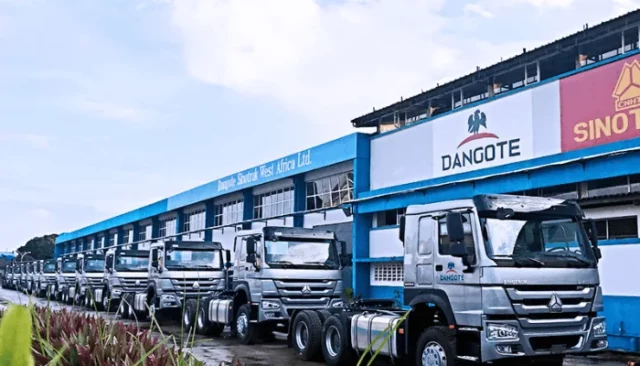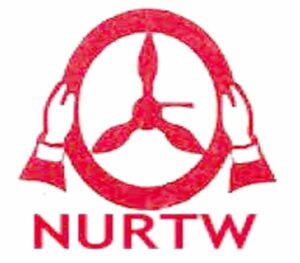
There was anxiety across the energy sector on Monday as the Dangote Refinery rolled out its fuel distribution scheme nationwide, deploying hundreds of compressed natural gas (CNG) trucks from its Lekki-Epe base in Lagos.
The multibillion-dollar refinery, which invested heavily in importing 4,000 CNG-powered trucks — with about 1,000 already on ground — says the initiative will slash fuel distribution costs and help the country save over ₦1.7 trillion annually. The company has pegged its new ex-depot price at ₦820 per litre, with retail pump prices expected to range between ₦841 and ₦851 depending on location.
While many consumers welcomed the prospect of cheaper fuel and greater availability, the development has triggered unease within the downstream oil sector.
The Nigeria Union of Petroleum and Natural Gas Workers (NUPENG), still in dispute with Dangote Refinery over alleged labour issues, dismissed the initiative as a “Greek gift”, accusing the firm of playing to the gallery. Similarly, the Depot and Petroleum Products Marketers Association of Nigeria (DAPPMAN) warned that the promise of free delivery could distort competition.
In contrast, the Independent Petroleum Marketers Association of Nigeria (IPMAN) endorsed the move, urging members to key into the refinery’s distribution chain.
However, the initiative comes at a time when Dangote trucks have increasingly made headlines for accidents on Nigerian highways. Barely weeks ago, Ruth Otabor, sister of reality TV star Phyna, tragically lost her life in Auchi after being crushed by a Dangote truck. At the weekend, scores were injured in another collision involving one of the company’s trucks and a Benue Links bus along the Lagos–Kogi expressway.
Experts say while the scheme could ease supply bottlenecks, the risks of monopoly and safety lapses remain unresolved.
Professor Wumi Iledare, an Emeritus Professor of Petroleum Economics, described the move as bold but cautioned against unchecked dominance.
“Vertical integration is not the issue—it is common globally. The concern is that with Dangote already controlling refining, transport dominance could stifle competition,” he said.
He added that safety and traffic management must also be prioritised. “Nigerians are still mourning Ruth, and gridlocks from fleets of Dangote trucks could make life harder. The solution is simple: encourage innovation, but strengthen regulation, enforce safety, and ensure fair competition. Only then will Nigerians benefit without suffering unintended consequences.”
As the trucks hit the roads, Nigerians are left weighing convenience against concern — hopeful for relief at the pumps but wary of what the dominance of one giant could mean for the sector’s future.







